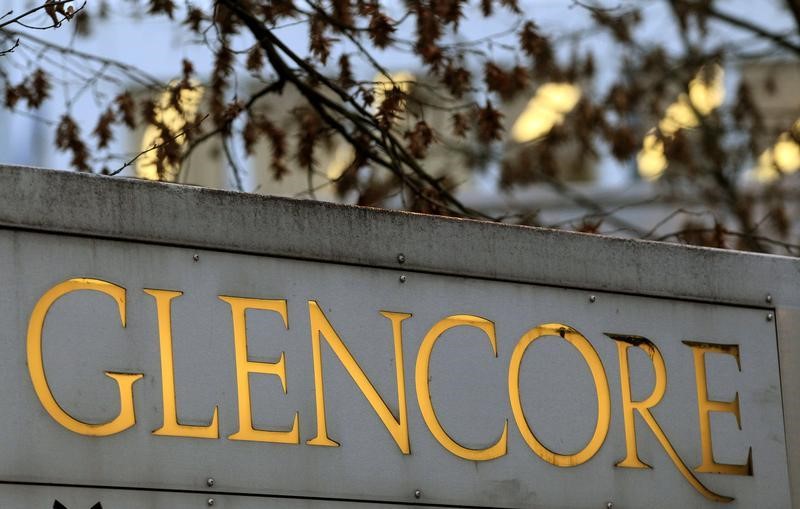By Silvia Antonioli
LONDON (Reuters) - The head of global mining and trading company Glencore (L:GLEN) said rivals were to blame for an oversupply of metals which depressed its share price.
Despite a partial recovery in the last few months, Glencore's shares are down about 6 percent from a year ago, under pressure from a rout in prices for most of the commodities it produces and trades.
"Unfortunately our competitors in the world have produced more supply than demand and commodity prices are down for that reason," Glasenberg said at the company's annual meeting.
"I am doing my level best to convince my competitors we should understand the words demand and supply," he added in response to a question from an investor about the share price.
Glasenberg has criticised rivals such as Rio Tinto (L:RIO) and BHP Billiton (L:BLT) (AX:BHP) at various times, blaming them for oversupplying the market, particularly in iron ore, a commodity Glencore has little exposure to.
Glasenberg said he was optimistic about the outlook for its key products: copper, nickel and zinc.
Coal, another main commodity for Glencore, also "looks good going forward", Glasenberg said, as Indonesia exports taper off with the country consuming more coal domestically.
Coal prices have been battered by a large supply overhang in the last couple of years.
Glasenberg has said unlike his rivals he would not aim to "cannibalise" his own market by adding to the glut.
The world's largest exporter of thermal coal said in March that its 2015 coal output was expected to fall by around 6 percent on the year after production cuts at some of its coal operations.
But London-listed Glencore's coal output rose by 4 percent in the first quarter this year from the same period a year ago.
In January the company said it could shut down production destined for export from its Optimum Coal Mines in South Africa, which would put 1,070 jobs at risk.
In reply to a shareholder who asked the company to prevent such a blow to the country, South Africa-born Glasenberg said if the company goes ahead with the Optimum closure it would expand capacity at another lower cost South African mine.

"So the net net effect should be the same but (would) just provide more benefit for shareholders, more benefit for the country, larger taxes being paid," he said.